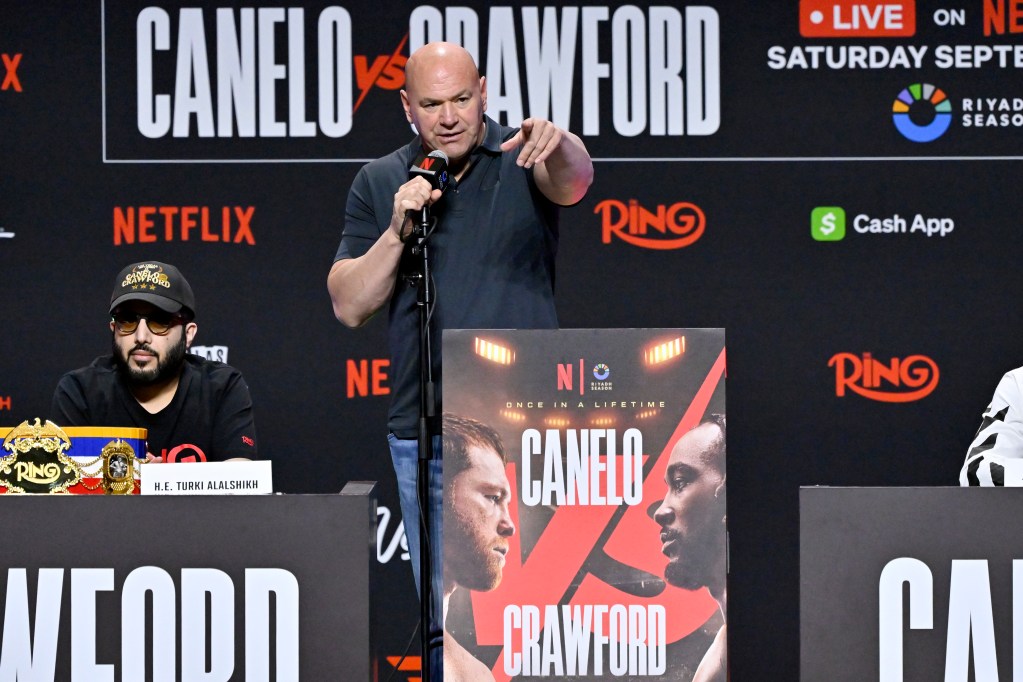The announcement of Dana White’s Zuffa Boxing has generated significant buzz, primarily from White, the executives at TKO Group Holdings, Inc. (owners of WWE, UFC, and Zuffa Boxing), and their associates at Sela, a Saudi Arabian entity specializing in large-scale sports and entertainment projects.
However, as often happens with White, the details of this venture can be overshadowed by the spectacle. This article aims to clarify the essential aspects that might determine whether Zuffa Boxing is a legitimate contender in the boxing landscape or just another fleeting headline. It also seeks to assist fighters who haven’t yet been contacted by Zuffa Boxing but are interested in what the venture truly encompasses.
The Muhammad Ali Boxing Reform Act Discussion
Since Zuffa Boxing’s announcement earlier this year, much of the dialogue has focused on the Muhammad Ali Boxing Reform Act of 2000, which was enacted to safeguard the rights and welfare of professional boxers, ensuring more transparency in the sport. The push to amend the Ali Act quickly became apparent.
TKO, Sela, and Zuffa intend to create an independent boxing league that operates outside the traditional four major sanctioning bodies, complete with its own rankings and titles. In July, U.S. Congressman Brian Jack from Georgia introduced the “Muhammad Ali American Boxing Revival Act (H.R. 4624).” This legislation would permit Zuffa Boxing to formulate its own rankings and world titles without relying on existing sanctioning bodies. Key highlights from the proposal include:
“This legislation facilitates the establishment of Unified Boxing Organizations (UBOs), granting professional boxers increased opportunities, better compensation, and enhanced safety measures.”
“The UBO framework will coexist with existing sanctioning organizations, offering an alternative system that can generate more events and provide boxers with greater choices.”
“Boxers will have the autonomy to select which system—sanctioning organizations or UBOs—suits them best.”
For Zuffa Boxing to move forward, passing the Revival Act is a prerequisite. The underlying motivations for their reform push are still speculative.
Is Zuffa Boxing a Fusion of Don King Productions and Premier Boxing Champions?
It’s essential to recall that one of the primary motivations behind the Ali Act’s enactment was to limit the excessive influence of promoters in boxing. Don King was a prime example of this, having been inducted into the International Boxing Hall of Fame in 1997, despite numerous controversies surrounding his power.
In the early 1980s, Don King Productions was gaining traction, securing its position in the sport before signing Mike Tyson in 1985. In 1989, former two-time heavyweight champion Tim Witherspoon sued King and his stepson, Carl King, alleging manipulative practices after King acquired his contract.
Judicial disputes between King and fighters have been frequent, with 2013’s case involving former WBC heavyweight champion Bermane Stiverne serving as another example of how the Ali Act protects fighters from exploitative business practices.
Recently, Al Haymon, owner of Premier Boxing Champions, has operated within the confines of advisory agreements with fighters. A 2014 article by investigative journalist Thomas Hauser details how Haymon’s agreements allow him exclusive rights to manage boxers, while using “best efforts” to further their careers—serving as a contrast to King’s notorious methods.
Fighters wishing to join Zuffa Boxing must first sign an advisory agreement with Realm Sports, LLC, an agency overseeing their initial four-year term. This relationship has raised questions about payment structures, as fighters might need to pay 15% of their earnings to the advisor, affecting their overall financial situation.
After finalizing the advisory contract, fighters will enter a Zuffa Boxing agreement, orchestrated by Hualapai Ventures Inc., which serves as the primary facilitator for TKO’s boxing initiative. Contract details, which surfaced earlier this year, indicate a three-year exclusive agreement with specific payments based on fighters’ rankings.
Will There Be a Market for This Structure?
One pressing question remains: Will fighters be willing to join Zuffa Boxing? Given the limited options currently available, many may see it as a viable choice. With no promoters, opportunities are slim for fighters hoping to secure spots on cards or compete as backup opponents.
While some industry leaders express doubt—like Matchroom’s Eddie Hearn—who critiques the concept of signing with Zuffa Boxing due to its financial terms, it is likely that many fighters will evaluate their circumstances and see Zuffa Boxing as a potential opportunity.
As 2026 approaches, the implications of the Muhammad Ali Revival Act and Zuffa Boxing’s role in shaping the sport are poised to be hotly debated. The bill has garnered bipartisan support, but its future remains uncertain.
Ultimately, the decision will rest with the fighters, weighing their personal and career goals against the offerings of this new boxing platform. This article aims to equip both fighters and fans with the necessary information to make informed choices, ensuring that transparency remains a priority as Zuffa Boxing develops.



